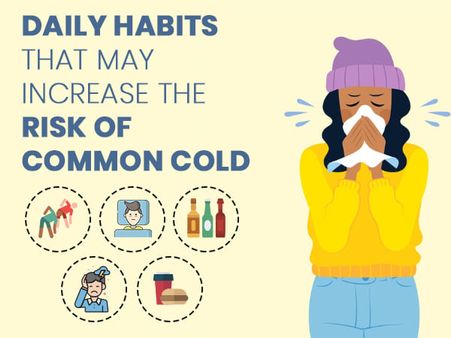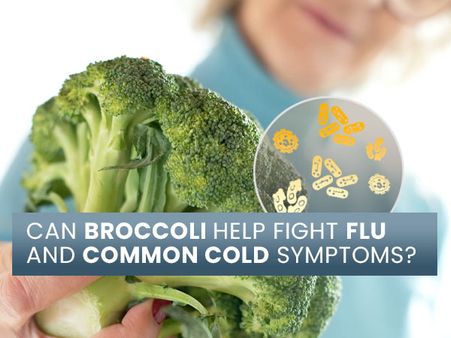Just In
- 1 hr ago

- 2 hrs ago

- 3 hrs ago

- 10 hrs ago

Don't Miss
- Finance
 Intraday Trade Call: Day Trading Stock Picks By Chandan Taparia Of Motilal Oswal On Thurday, 25 April
Intraday Trade Call: Day Trading Stock Picks By Chandan Taparia Of Motilal Oswal On Thurday, 25 April - Automobiles
 New Features Of The Ultraviolette F77 Mach 2: Uniting Performance, Safety, And Technology
New Features Of The Ultraviolette F77 Mach 2: Uniting Performance, Safety, And Technology - Sports
 IPL 2024: Why did Rishabh Pant Apologize to Cameraperson after GT victory?
IPL 2024: Why did Rishabh Pant Apologize to Cameraperson after GT victory? - Movies
 Aadujeevitham Box Office Collection Day 29 Prediction: Strong Overall Performance Amidst Recent Decline
Aadujeevitham Box Office Collection Day 29 Prediction: Strong Overall Performance Amidst Recent Decline - News
 Sonia Gandhi Shed Tears For Terrorists Killed In Batla Encounter: BJP Chief Nadda
Sonia Gandhi Shed Tears For Terrorists Killed In Batla Encounter: BJP Chief Nadda - Education
 JEE Main Result 2024 Out, Telangana's 15 Toppers Shine, Check Statewise List of 56 Candidates with Perfect 100
JEE Main Result 2024 Out, Telangana's 15 Toppers Shine, Check Statewise List of 56 Candidates with Perfect 100 - Travel
 Escape to Kalimpong, Gangtok, and Darjeeling with IRCTC's Tour Package; Check Itinerary
Escape to Kalimpong, Gangtok, and Darjeeling with IRCTC's Tour Package; Check Itinerary - Technology
 OPPO Find X7 Ultra Camera Deep-Dive: Pushing the Boundaries of Photography on a Smartphone
OPPO Find X7 Ultra Camera Deep-Dive: Pushing the Boundaries of Photography on a Smartphone
Everything You Need To Know About The Common Cold And Flu
Common cold and flu are the two types of viral infections often characterised by similar symptoms such as fever, cough, cold, runny nose and many others. While the common cold is usually milder, flu symptoms can get severe and intense and may cause conditions like pneumonia or hospitalisation.
The common cold, as the name suggests, is a commonly-occurring viral disease that no one can avoid for their whole life. Both the common cold and flu can occur any time of the year, however, the prior is more common during the winters. Also, the common cold is caused by around 200 different types of viruses while flu is caused by the influenza virus, which also causes conditions such as swine flu and bird flu. [1]

A study says that the mortality rate due to the common cold and flu is nearly zero. This is because the causative agents of both the viral infections can easily be treated with potent medications such as cough medications and nonsteroidal anti-inflammatory drugs or flu vaccine.
This article, Everything you need to know about the common cold and flu, by Boldsky, will give you a complete insight into the topic of common cold and flu, such as foods that may help prevent the common cold, herbal remedies to fight bird flu, how to prevent swine flu and foods to combat both flu and the common cold.
The article contains the following information:
- Foods That May Help Prevent The Common Cold
- Foods To Avoid When You Have Common Cold
- Daily Habits That May Increase The Risk Of Common Cold
- Signs That Say It's More Than Just A Common Cold
- Are Zinc Lozenges Effective For The Treatment Of Common Cold?
- Herbal Home Remedies To Fight Bird Flu Or Avian Influenza
- Healthy Tips On How To Prevent Swine Flu
- Why People With Asthma Are At Increased Risk Of Flu
- Best Foods To Eat When You Have Stomach Flu
- Flavonoid-Rich Foods To Combat Flu And Common Cold
- Can Broccoli Help Fight Flu And Common Cold Symptoms?

1. Foods That May Help Prevent The Common Cold
The common cold is mainly caused by allergies, seasonal change, infections or intake of cold foods. It usually clears up in a week or 10 days without any medications. Recurring episodes of the condition can be due to a weakened immune system and unhygienic habits.
The foods we consume have a lot of impact on our body. Some foods such as cold drinks may worsen the common cold and some such as seafood and citrus fruits can help boost the immune system and tackle its symptoms effectively.
To know more about the list of foods that may help fight the common cold and boost immunity, read this article: 15 Foods That May Help Prevent The Common Cold

2. Foods To Avoid When You Have Common Cold
Diet plays a major role in treating or aggravating common cold symptoms. This upper respiratory tract infection often gets cleared within a week, considering its triggering factors, such as certain foods are avoided.
Some foods such as curd, soft drinks or fried foods can increase mucus production, disrupt the gut microbiota and reduce the white blood cells, thus decreasing the immune power and worsening the common cold.
To know more about what foods to avoid when you have a common cold, read this article: Curd, Alcohol, Candies And Other Foods To Avoid When You Have Common Cold

3. Daily Habits That May Increase The Risk Of Common Cold
Though common cold is not a severe condition, it can interfere with daily habits due to its irritating symptoms such as sneezing, coughing or throat pain. Experts suggest that an unhygienic lifestyle is the main cause of the common cold and thus, maintaining clean and hygienic lifestyle habits can help prevent the condition to a great extent.
This is because, in most cases, viruses spread through unhygienic places, not maintaining hand hygiene, uncooked foods, polluted areas, crowded places and physical contact with infected people.
To know more about daily habits that may increase the risk of common cold, read this article: Daily Habits That May Increase The Risk Of Common Cold

4. Signs That Say It’s More Than Just A Common Cold
Common cold symptoms are often confused with the initial symptoms of many severe conditions such as flu, dengue fever or ebola. Due to this confusion, people often delay the treatment, which may lead to fatal medical conditions such as pneumonia.
The common cold persists for a week or 10 days while flu can take around two weeks to cure. Also, cold symptoms come slowly and are usually harmless while symptoms of flu or ebola disease come quickly and get severe within a few days.
Therefore, it is best to identify the difference between the symptoms of the common cold and other similar conditions such as flu. To know more about the unusual signs which are not normal in the common cold and usually indicated more serious conditions, read this article: Signs That Say It's More Than Just A Common Cold

5. Are Zinc Lozenges Effective For The Treatment Of Common Cold?
The treatment of the common cold with zinc lozenges are an easy and effective method as it helps reduce the duration of the condition along with boosting immunity simultaneously, says a study. [2]
Zinc is considered a vital nutrient for the body to fight off pathogens. It can help in the functioning of around 300 enzymes related to the immune system, inhibit the replication of viral infections and stimulate the functioning of proteins that help with pathogen defence.
To know more about an association between zinc lozenges and the common cold, read this article: Are Zinc Lozenges Effective For The Treatment Of Common Cold?

6. Herbal Home Remedies To Fight Bird Flu Or Avian Influenza
Bird flu, also known as avian influenza, is a viral disease that affects chickens, ducks and humans by coming in direct contact with infected poultry. Symptoms of bird flu in humans show within 2-8 days and can be mild to severe.
Herbal remedies such as turmeric in warm water, astragalus roots tea or garlic with water can help reduce the mild symptoms of bird flu by boosting immunity or fighting off pathogens.
To know more about a few herbal home remedies that help fight bird flu or avian influenza, read this article: 12 Herbal Home Remedies To Fight Bird Flu Or Avian Influenza

7. Healthy Tips On How To Prevent Swine Flu
Swine flu is a common infection in pigs. It is a communicable viral disease that often transmits from pigs to humans through contact with infected animals. Symptoms include fever, chills, reduced appetite and diarrhoea.
Swine flu also has a history of causing many pandemics since 1918. Though the condition is life-threatening, it can easily be prevented by a few healthy tips such as washing hands frequently, avoiding eating uncooked or half-cooked pig meats and maintaining a balanced diet and regular exercise.
To know more about healthy tips on how to prevent swine flu, read this article: 11 Healthy Tips On How To Prevent Swine Flu

8. Why People With Asthma Are At Increased Risk Of Flu
Flu is a communicable influenza virus disease while asthma is a chronic non-transmissible inflammatory disease. Both conditions can cause severe respiratory conditions in humans.
Many studies have shown that people with asthma are more likely to get affected by the influenza virus compared to healthy adults, due to their weakened immune system. However, influenza vaccines can be an effective way to prevent around 59 to 78 per cent of asthma attacks.
To know more about how flu is linked to people with asthma, read this article: Why People With Asthma Are At Increased Risk Of Flu

9. Best Foods To Eat When You Have Stomach Flu
Stomach flu or gastroenteritis is a common viral infection of the stomach and intestines. The condition is often confused with food poisoning due to similar symptoms such as diarrhoea, stomach pain and vomiting.
Experts suggest that during stomach flu, one must keep a check on the foods one consumes. Some foods such as banana, rice water and ice chips can help decrease the feeling of nausea, reduce stomach irritation and help fight stomach pathogens.
To know more about what foods to eat when you have stomach flu, read this article: 15 Best Foods To Eat When You Have Stomach Flu

10. Flavonoid-Rich Foods To Combat Flu And Common Cold
Flavonoids are plant-based antioxidant compounds that may help combat flu and common cold viruses, regulate the immune system and improve gut microbiota due to their antiviral, anti-influenza and immunomodulatory properties.
This plant compound is present in almost all fruits, vegetables, nuts and seeds such as blackberries, onions and red wine. However, some food items contain them in abundance.
To know more about some of the flavonoid-rich foods that may help fight or prevent flu and the common cold, read this article: Blackberries, Onions, Red Wine: Flavonoid-Rich Foods To Combat Flu And Common Cold

11. Can Broccoli Help Fight Flu And Common Cold Symptoms?
Consuming a balanced diet or say ‘eating clean' is best for the overall health. Some of the vital nutrients that must be included in a balanced diet include omega-3, folate, vitamins, minerals and carbohydrates.
Many fruits and vegetables contain the aforementioned nutrients, however, among them, broccoli is considered a superfood by experts as it is rich in phytochemicals such as sulforaphane, antioxidant vitamins such as vitamin C and A, and immune-system boosting minerals such as selenium, zinc and iron.
These plant chemicals can effectively help treat rhinovirus and influenza virus, those that cause the common cold and flu.
To know more about why broccoli is considered a superfood in the treatment and prevention of common cold and flu, read this article: Can Broccoli Help Fight Flu And Common Cold Symptoms?
-
 wellness5 Foods To Relieve Common Cold Symptoms Like Sneezing And Runny Nose
wellness5 Foods To Relieve Common Cold Symptoms Like Sneezing And Runny Nose -
 nutritionHealth Benefits Of Garlic: From Common Cold To Cancer Treatment
nutritionHealth Benefits Of Garlic: From Common Cold To Cancer Treatment -
 healthCommon Cold T Cells May Offer Protection Against COVID-19: UK Study
healthCommon Cold T Cells May Offer Protection Against COVID-19: UK Study -
 wellnessBlackberries, Onions, Red Wine: Flavonoid-Rich Foods To Combat Flu And Common Cold
wellnessBlackberries, Onions, Red Wine: Flavonoid-Rich Foods To Combat Flu And Common Cold -
 wellnessCan Broccoli Help Fight Flu And Common Cold Symptoms?
wellnessCan Broccoli Help Fight Flu And Common Cold Symptoms? -
 wellnessAre Zinc Lozenges Effective For The Treatment Of Common Cold?
wellnessAre Zinc Lozenges Effective For The Treatment Of Common Cold? -
 wellnessCurd, Alcohol, Candies And Other Foods To Avoid When You Have Common Cold
wellnessCurd, Alcohol, Candies And Other Foods To Avoid When You Have Common Cold -
 wellnessDaily Habits That May Increase The Risk Of Common Cold
wellnessDaily Habits That May Increase The Risk Of Common Cold -
 disorders cureSigns That Say It’s More Than Just A Common Cold
disorders cureSigns That Say It’s More Than Just A Common Cold -
 wellness15 Foods That May Help Prevent The Common Cold
wellness15 Foods That May Help Prevent The Common Cold -
 disorders cure9 Surprising Facts About Common Cold You Never Knew!
disorders cure9 Surprising Facts About Common Cold You Never Knew! -
 disorders cure5 Indian Home Remedies For Cold That Actually Work!
disorders cure5 Indian Home Remedies For Cold That Actually Work!


 Click it and Unblock the Notifications
Click it and Unblock the Notifications



